Best Nigerian XI of the decade (The 2010s)
To close out decades, Pulse Sports in this piece, put together the best player in each position on the field of play the 2010s had to offer.
The 2010s saw the end of what many regard as the golden generation of Nigerian football. Kanu Nwankwo, Finidi George, Daniel Amokachi, Taribo West, Austin Okocha were some of the players in that golden era that excelled with their talents. From their club careers to national team moments, the legacy of that era is well remembered.
The 2010s saw the emergence of a new era. While the likes of Mikel Obi, Osaze Odemwingie, Obafemi Martins were already established internationals at the start of the decade, the 2010s started with them as the faces of Nigerian football.
As the decade wore on, more players emerged and made their marks.
To close out decades, Pulse Sports in this piece, put together the best player in each position on the field of play the 2010s had to offer.
Criteria used for the selection of these players include, impact in the national team, titles won for Nigeria and consistency of their club careers.
Vincent Enyeama (Goalkeeper)
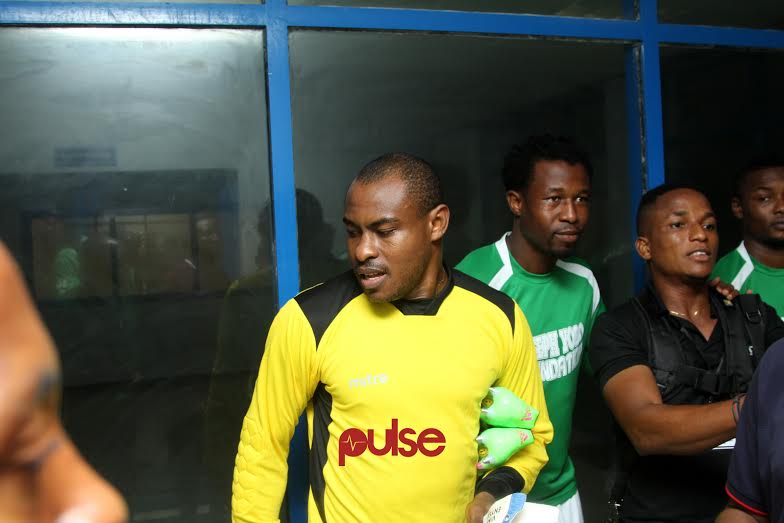
Regarded by many as the greatest Nigerian goalkeeper, Enyeama was the undisputed Nigerian goalkeeper of the 2010s. He started the decade by winning the league and cup double with Hapoel Tel Aviv in Israel before a move to Lille in France.
It didn’t start very well for him at Lille but after a loan deal back to Israel in the 2012/2013 season, he became the first-choice goalkeeper at the club and delivered incredible performances. In the 2013/2014 season, Enyeama kept 11 straight clean sheets in Ligue 1 and was close to equaling a league record.

For the national team, Enyeama was ever-present in the Super Eagles and played in all the games at 2010 Africa Cup of Nations (AFCON) and then the 2010 FIFA World Cup in South Africa.
He was the vice-captain and played a crucial part as Nigeria won AFCON 2013 in South Africa and was included in Confederation of African Football's (CAF) Team of the Tournament. His last tournaments with the Super Eagles were the 2013 Confederations Cup and the 2014 FIFA World Cup.
Efe Ambrose (Right-back)

Ambrose for the better part of the 2010s was the most consistent Nigerian right back. Although he also played as a central defender, Ambrose was the undisputed right-back for the Super Eagles for a couple of years.
It was in 2012 that the defender moved to Scotland where he won five consecutive league titles.
It started at Celtic where he won the league title four straight times while playing more than 20 games in each of the seasons.
He moved to a lower division to play for Hibernian in the Scottish second tier and helped them to the league title.
The defender was a crucial part of the Super Eagles squad that won the only trophy of the decade, the AFCON 2013 title. He played six of the seven games in that tournament and was included in the CAF’s Team of the Tournament.

Subsequently, the defender played in all Super Eagles games at the 2013 FIFA Confederations Cup and the 2014 FIFA World Cup.
Kenneth Omeruo (Central defence)
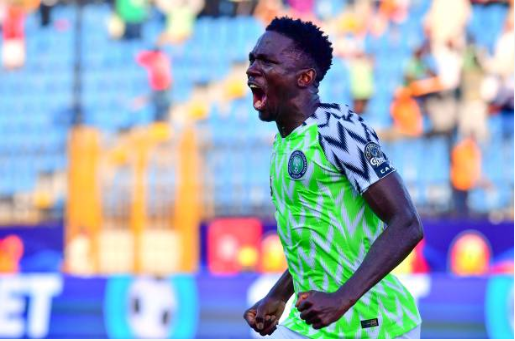
Omeruo came into prominence in the early years of the 2010s when he first moved to Europe from Sunshine Stars. He was snapped up by Chelsea in January 2012 and although he never played for them, he has sustained a consistent career in Europe’s top flight. These days he plays in the La Liga with Leganes.
He broke into the Super Eagles in 2013 and has been the most consistent Nigerian defender since then. He was just 19 when the late Stephen Keshi took him along to AFCON 2013 to be an understudy but he was thrown into action and played every game as Nigeria won the title. He played all of Nigeria’s games at the 2013 FIFA Confederations Cup and the 2014 FIFA World Cup.
He lost his form and his place in the Super Eagles but managed to make two appearances at the 2018 FIFA World Cup before he returned to become an important player at AFCON 2019.
William Troost-Ekong (Central defence)

Troost-Ekong emerged in 2015 when he made his debut for the Super Eagles and since then, he has been the most consistent figure in central defence for the Super Eagles.
Along with Leon Balogun, Troost-Ekong formed a central defensive partnership that defined the first three years of Gernot Rohr’s stint as Super Eagles coach.
He then joined the U23 to win the bronze medal of the 2016 Olympic Games before playing all the games of the 2018 FIFA World Cup. He was also an important figure in the Super Eagles that finished third at AFCON 2019.
His club career has also gotten a lift, going from Haugesund in Norway, to Bursaspor in Turkey before his move to Serie A side Udinese where he has been a consistent performer.
Elderson Echiejile (Left-back)

He had his critics, but Echiejile delivered enough to make this XI in a position that still lacks a stand-out performer since he left the scene.
His club career didn’t hit any exceptional height but it was with the Super Eagles that he made enough impact to make this XI.
He played all the games at Nigeria’s victorious outing at AFCON 2013 and contributed a goal. He also played all the games of the 2013 FIFA Confederation Cup but missed out on the FIFA World Cup the following year due to injury.
He makes this XI because we couldn’t pick out a player in this position that performed consistently enough either for club or country in the 2010s.
Wilfred Ndidi (Defensive midfield)
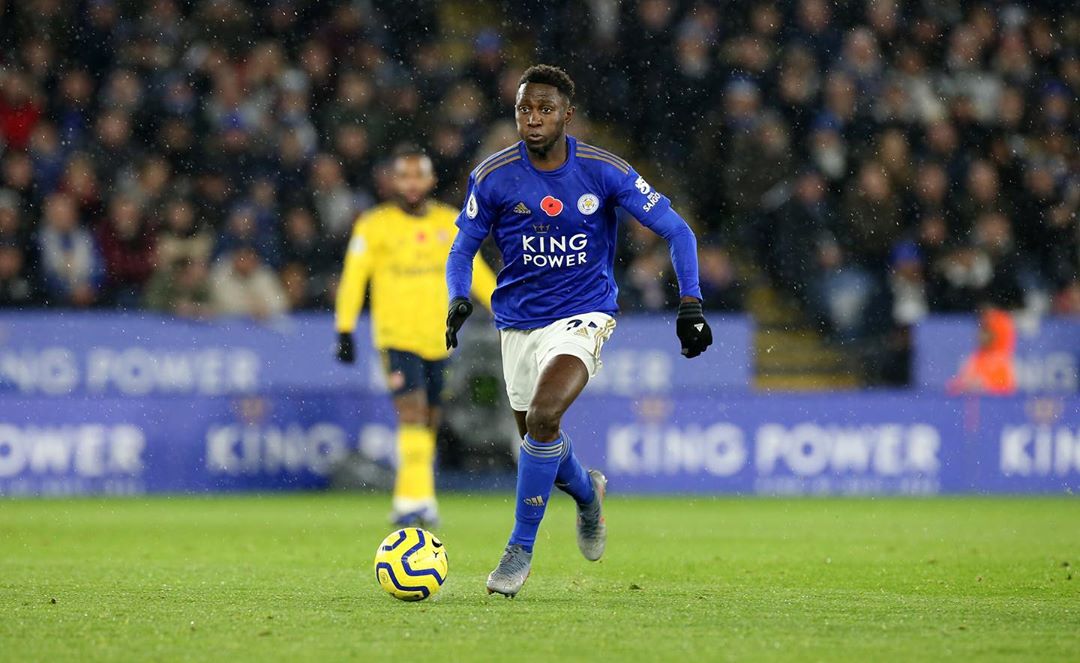
Since his move to Leicester City in January 2019, Ndidi, has grown from strength to strength and is currently considered to be one of the best midfielders in the Premier League, if not the whole of Europe.
For the Foxes, Ndidi has maintained an incredible amount of consistency and improvement that has made him the genuine candidate to be the only Nigerian player that can be considered world-class.
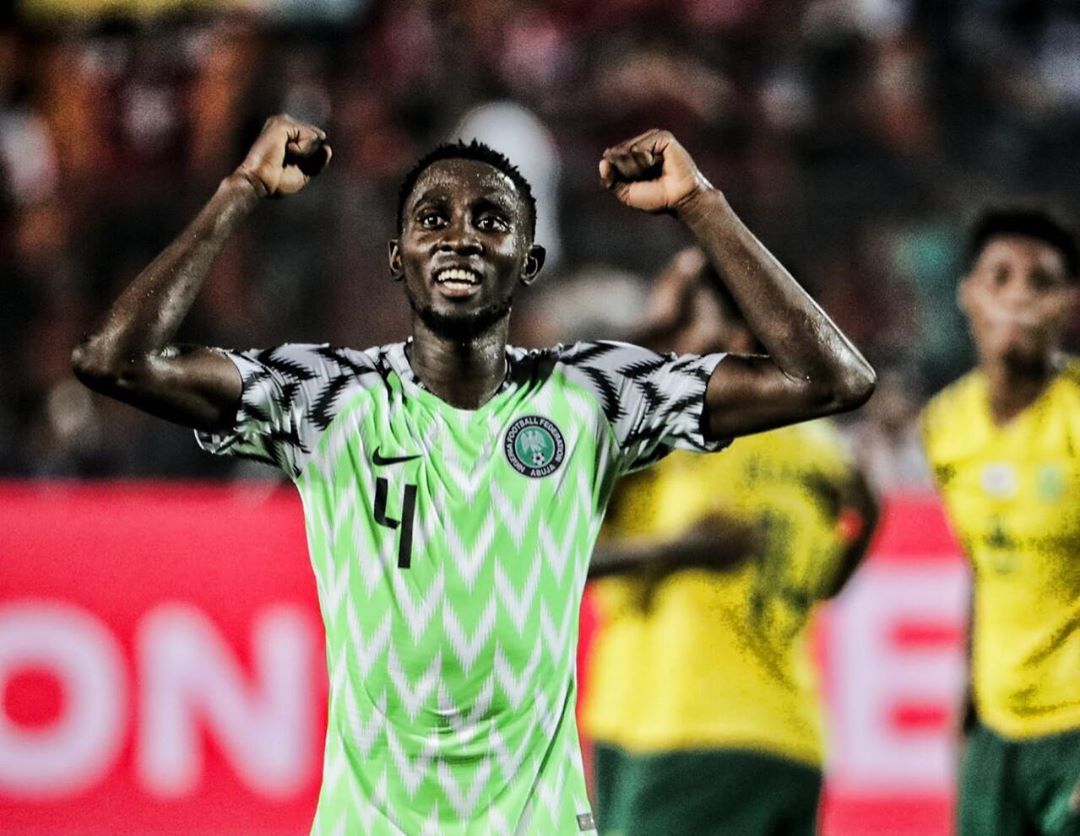
For the Super Eagles, he has been a reliable performer in the last three years of the decade and is one of the players who have played a part in the resurgence of the national team.
He already has the 2018 FIFA World Cup and the AFCON 2019 to his belt.
Ogenyi Onazi (Midfield)

He might not be most cherry-picked but Onazi was one of the most consistent Nigerian midfielders in the 2010s.
He broke out from the Lazio youth level to make his debut for the senior side and played there for over five years, making more than 10 appearances in each season. He also made two appearances in Lazio’s 2013 victorious outing in the Coppa Italia including the final against Roma.
It was in the same year that he played in every game as the Super Eagles won AFCON 2013 title in South Africa. He became even more important for the Super Eagles and was their best player at the 2014 FIFA World Cup in Brazil.
He was so good in that tournament that street folklore still it that France wouldn’t have beaten the Super Eagles in the round-of-16 if he had not gotten injured and taken off.
John Mikel Obi
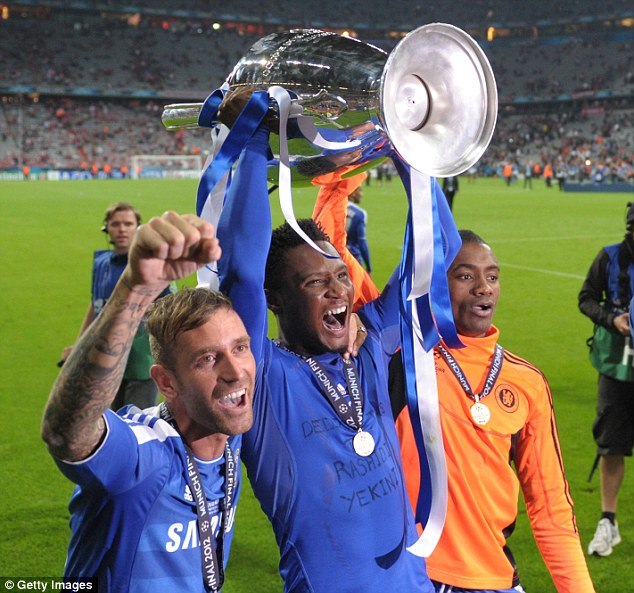
The best and most consistent Nigerian footballer of the past decade, Mikel played at the highest level and won every trophy in club football. In an era when Nigerian football exports failed to cut it at the highest level, Mikel was doing it effortlessly at Chelsea, playing an important role as they won the Premier League, FA Cup, Champions League and Europa League.
He played his best football in this decade too, putting up solid performances as Chelsea won the league and cup double.
It was in 2012 that he helped Chelsea to the Champions League title, playing arguably his best game in a Chelsea shirt in the final against Bayern Munich. He added the Europa League the following season and still got a league title in 2015.
He played every game as Nigeria finished third at AFCON 2010 but missed the 2010 FIFA World Cup due to injuries. In 2013, he was one of the senior players and was impressive in midfield as Nigeria won the title. His performances in South Africa ensured he made CAF’s Best XI of the tournament.

After years of questionable commitment to the national team, Mikel took up more responsibilities in the Super Eagles and provided the leadership needed to help the new crop of players that Gernot Rohr brought in the team.
In 2016, got an Olympic medal to his name after he captained Nigeria’s U23 to win a bronze medal at the 2016 Olympic Games.
Victor Moses

The beginning of the decade saw the emergence of an exciting winger tho caught the eyes with his performances for Wigan.
He got his move to Chelsea where he made 10 appearances as they won the Europa League in 2013. It took him three seasons before he could make an appearance for them again.
That season, Moses had taken up the role of a wingback impressively to help Chelsea to a Premier League title win and an FA Cup trophy the following season.

His Super Eagles debut was an exciting moment for Nigerians who were happy to have had the forward switch his allegiance to Nigeria after playing at the youth levels for England. He was one of Super Eagles best players as the Super Eagles won AFCON 2013 title and was duly named in CAF’s Best XI of the tournament.
Ahmed Musa

Musa is not on this XI for his club exploits, rather, it’s his performances for the Super Eagles that has made him one of the players of the decade.
He made his breakthrough at the 2010 WAFU Nations Cup helping Nigeria to the title before making his debut for the Super Eagles at the age of 17 in the same year. He also went to play for the Flying Eagles and was shortlisted for the FIFA’s Adidas Golden Ball, which was awarded to the most outstanding player of the 2011 FIFA U20 World Cup where he scored three goals in five games.
He played five of the six games at AFCON 2013 as Nigeria won the title and scored in the 4-1 win over Mali in the semi-final.
After that tournament, he made more impact with the Super Eagles, giving us some of our best moments of the decade. His brace against Argentina at the 2014 FIFA World Cup and the two goals he scored in that famous 2-0 win over Iceland at the 2018 FIFA World Cup in Russia.

ALSO READ: Rating all 23 Super Eagles players at 2018 FIFA World Cup
While his impact was more with the Super Eagles, Musa maintained a stable club career winning three Russian Premier League titles with CSKA Moscow and getting a move to Leicester City although he didn’t work out for him in England.
Odion Ighalo
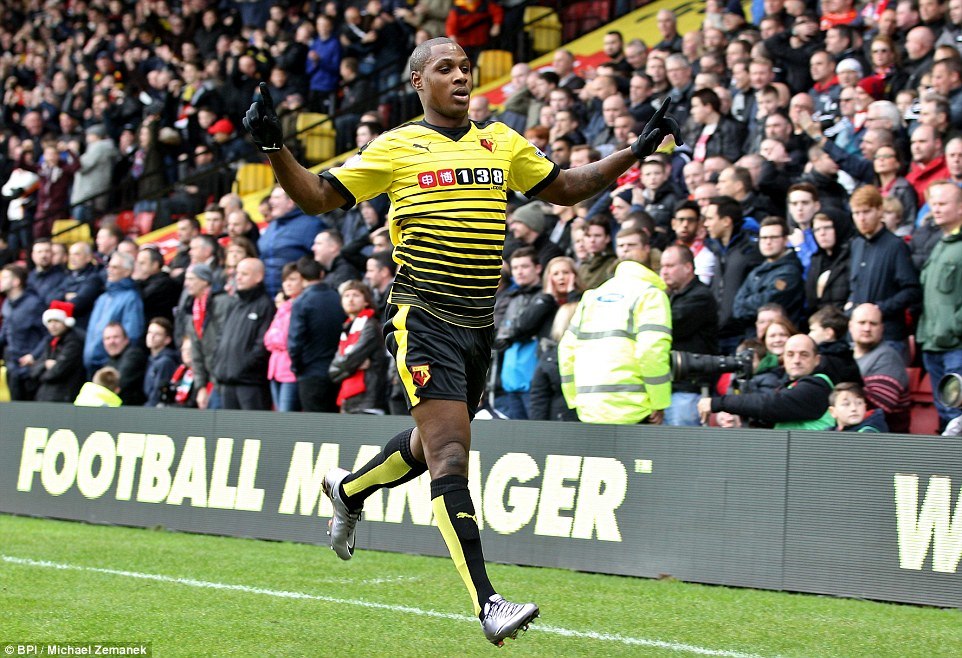
Posterity might not judge him well but Ighalo was undoubtedly the Nigerian striker that played with the most consistency in the 2010s. Although he didn’t start early in this decade, Ighalo came into prominence after his move to Watford in July 2014.
He scored 20 goals in his first season with Watford and helped them to promotion to the Premier League where he was a success. In the 2015/2016 season, the striker scored 15 goals in the English top-flight.
He moved to China in 2017 where he was impressive again with 36 goals in two seasons for Changchun Yatai.
Ighalo made his Super Eagles debut in 2015 but didn’t make much impact in national colours. He scored some goals during the qualifiers for the 2018 FIFA World Cup but failed to score in the tournament and even missed some chances in a group game loss to Argentina which he faced heavy backlash for.
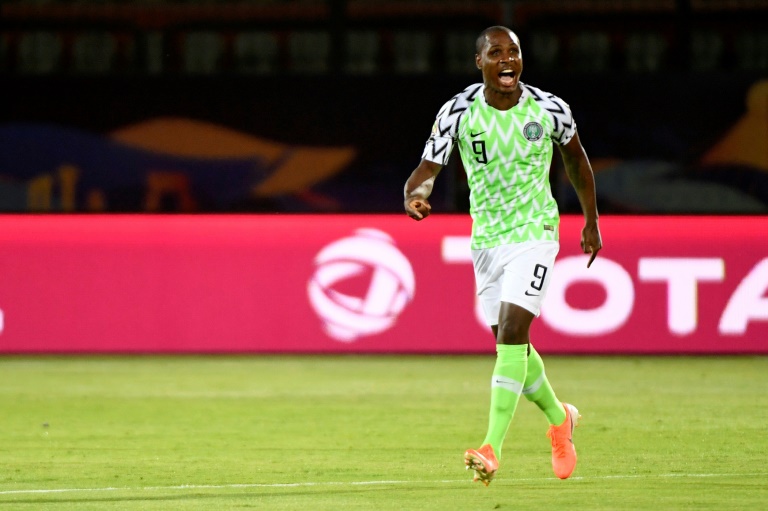
After toying with retirement, he returned to finish as the highest goalscorer at both in the qualifiers of AFCON 2019 and the main tournament in his last acts as Super Eagles striker.

Post a Comment